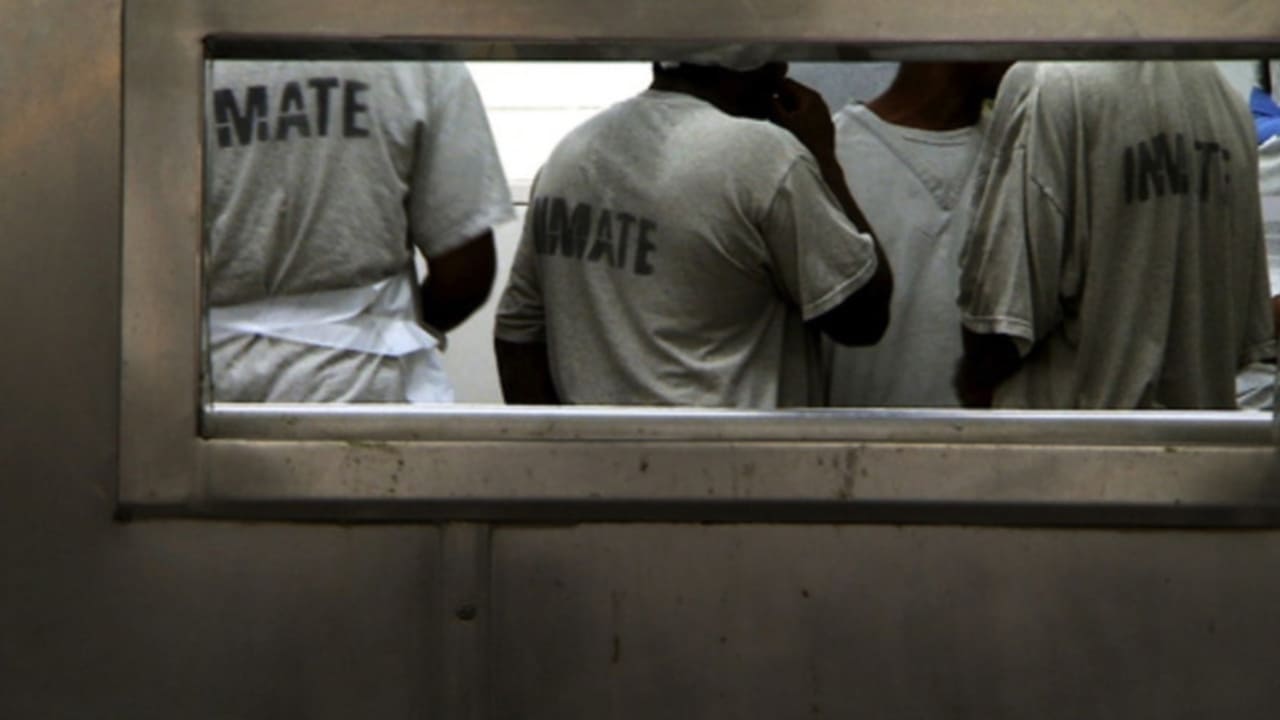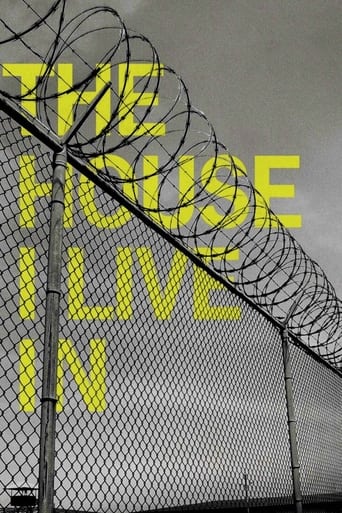Hellen
I like the storyline of this show,it attract me so much
Scanialara
You won't be disappointed!
Robert Joyner
The plot isn't so bad, but the pace of storytelling is too slow which makes people bored. Certain moments are so obvious and unnecessary for the main plot. I would've fast-forwarded those moments if it was an online streaming. The ending looks like implying a sequel, not sure if this movie will get one
Kodie Bird
True to its essence, the characters remain on the same line and manage to entertain the viewer, each highlighting their own distinctive qualities or touches.
Dr Jacques COULARDEAU
The film is clear, at times slightly long, maybe repetitive, but clear as crystal. The war on drug was first declared by Richard Nixon in 1971 in the midst of the final sinking phase of the USA in Vietnam, of course to hide the shameful defeat in a war in which the USA should never have put their nose. But this process of declaring war on something that is as badly defined as drugs, heroin, cocaine, crack, methamphetamine, etc., or on something as emotional and sectarian as terrorism meaning Islamic terrorism, meaning Islam, has been a central characteristic of American politics for a very long period of time and as soon as they get out of one war they have to get themselves into another one. [...]This documentary concentrates on one war waged inside the USA, the war on drugs.With 5% of the population of the world the USA have 25% of the incarcerated population of the world. And most of the incarcerated people are for drug related offences, most of the time possession of small quantities of some drug or personal private use. The Black users of crack in America are 13%, just the same proportion as the black population in the USA, and yet they represent 90% of the incarcerated people for crack connected offences. The easy conclusion is that it is a war on drugs that targets the blacks. Wrong. Absolutely wrong. It is not the primary objective. It is the vicious consequence of the primary objective of the war on drugs. First the American society has been under a vast transformation of gentrification of many urban areas and the rejection of those who cannot afford these urbanized areas into derelict and dilapidated urban zones that become real ghettos for the poor, not racial ghettos, but ghettos of the poor. There can even be some whites, and in the apocalyptic de-industrialized urban areas in the USA, ex- blue- collar working class neighborhood the white population may be the majority of these abandoned, unemployed people.It is just a consequence of this ghettoization of rundown urban areas in which the poorest population find themselves locked up and under constant police surveillance if not harassment, the only economic activity is producing, distributing and selling drugs, and the only compensation for the feeling of complete abandon is using drugs. Add to that the fact that mandatory sentences have been instated for drug offenses by the various state legislatures and by federal Congress, under Democrat or Republican congressional majorities or Presidents, that make drugs the main cause of imprisonment and the guarantee that you will spend a great number of years in prison for a nonviolent offense that does not draw blood from anyone, except in a metaphorical sense.Even worse they have established extremely heavy (twenty times heavier, sentences for smokable cocaine (crack) as compared to powder cocaine, and there a social preference is clear that becomes racial. Crack is a street drug essentially used by the poorest in a society, hence in the poor ghettos where the majority of the population is black. Just raid these ghettos and you'll get your victims. Powder cocaine is middle-class and upper class, hence mainly white.Even worse. The policemen in the various Police Departments get extra premiums for the arrests they make: a raid on drugs in one ghetto is going to bring an easy fifty or more arrests, fifty or more premiums shared by the various cops, whereas the Crime Investigation Service might make only one arrest in one week or one month. They do not wear uniforms, they are paid better, but premium- wise they do not have the proper end of the stick. That encourages the uniformed policemen to arrest as many drug offenders as possible, even for possession when they find one gram of crack in a pocket after searching someone who was just passing by. The last vicious element is that they are building prisons for an ever and fast increasing population. Once the prisons are built, they have to be filled. They are often Public Private Partnership managed as industrial units by the private partner who guarantees a vast profit shared between the local public authority and the private partner and becoming the first employer of the community, hence and thus untouchable. Here you have the full recipe for success: let's get rid of the poor by putting them away in concentration camp called prison where they can generate a profit for the community and some private concerns, where they will stay for long periods of time and come back after a short recess of freedom, and the vast majority of the population in these prisons will be black: a vengeance of the USA on their ex- slaves, five generations later, on these rowdy people who dare demonstrate and fight for human rights and civil liberties.The war on drugs is the way the USA are eliminating the poor by incarcerating them, with the secondary effect of hitting the black population first of all and thus de-structuring that population thus forever doomed in their Post Traumatic Slavery Stress Syndrome. And Trump has just said it: no discrimination will be tolerated but this is not discrimination. This is the war on drugs and crime, hence a holy war at least at the same level as the war against Islamic terrorism, as Trump as said again. And God is on his side, he said too.Dr. Jacques COULARDEAU
davideo-2
STAR RATING: ***** Saturday Night **** Friday Night *** Friday Morning ** Sunday Night * Monday Morning Since President Nixon announced a crackdown in the early 1970s, the 'War on Drugs' has been probably the main source of arrests in the United States, caused families across the country to fragment and fall apart, and made America the country with the highest jail population in the developed world and beyond. This hard line stance, that serves to illuminate a particular section of society and make them scapegoats, is designed to act as a moral standpoint that appears to be acted on, but is actually doing more harm than good, creating criminals out of otherwise law-abiding, non violent people, and targeting America's black population more than any other. Eugene Jarecki delves headfirst into the front line of those affected by this war, from the low level dealers and their families, academics, those involved in treatment, but more startlingly even those on the other side of the fence, such as a host of disillusioned lawmen, judges and penal workers, whose opinions have also shifted to the more liberal way of thinking.Independent film is easily the best way to express an opinion artistically that mainstream cinema would not comfortably touch with a bargepole. While usually in America it comes from expressing an opinion that others would consider unpatriotic, here Eugene Jarecki has created an in-depth, thorough assault on a moral standpoint that has been the word of law for several decades now, and that other countries soon followed suit with, such as Britain with the Misuse of Drugs Act. The most high profile contribution comes from David Simon, the creator of highly successful cop show The Wire, and it's most startling that we hear from a series of cops who question the validity of what they're doing.It plays almost in the manner of a prosecution barrister acting against the War on drugs in court. We hear evidence that it has racist origins from the last century, that play into its racist nature today, which disproportionately targets black communities more than any other, that judges are not free to use their own discretion and judgement when sentencing, but are instead saddled with guidelines that they must obey without fail, that unscrupulous cops can use it to boost their arrest rate and even steal property through civil asset seizure, and that it's all just basically an excuse to do away with those who those in power don't see as having any use to society, beginning with the black community in the 80s with crack cocaine, before progressing to white trailer parks in more recent times with crystal meth.Jarecki has studied the evidence, and knows which cards he's chosen, and what has to be admired is the sheer thoroughness and depth with which he's presented his case. If people who are meant to be on the front line can have their opinions swayed after years of bitter experience, surely a casual viewer who maybe has an unsympathetic view to drug addicts can. The only ones who surely never will (in public, anyway) are the self serving, hollow politicians who would never risk their careers by saying what they truly think. ****
kmartin108
This is a compelling documentary. Please see it. The drug war that results in mass incarceration is probably the most critical emerging issue of our time. If you care about humanity, and if you care about the economics of our country, then go see this film.The filmmakers seamlessly describe the complexities that underly the drug war and mass incarceration. Then they show the devastating unintended consequences of this misguided policy approach. Finally, they raise important questions that will help to craft a new way forward.I am going to do my part to get as many people that I can to see this film. I'm posting it on Facebook, I'm writing reviews, and I'm telling people about it in my capacity as a trainer in child welfare. The filmmakers deserve a huge thank you for calling out the ugly truth of the drug war in a way that we can understand it, and do something about it.
Nick Farr
The House I Live In is a very informative work of advocacy that's only thinly masquerading as a documentary. It's a more reformed, nuanced version of a Michael Moore piece that has a clear point of advocacy aimed squarely at whatever practical center still exists. It doesn't hit you over the head with a message or misleading facts but squarely lets you arrive at the conclusion that the drug war has failed. It's not an anti-corporate rant with a clear villain to rally against. I left thinking that there was enough material and story there to easily fill a mini-series or a Ken Burns style documentary without getting preachy or creating fatigue.It has enlightening and entertaining moments, but there are many flaws in the storytelling. Many characters are introduced, many of which with too much or not enough background, and seem to float around their promised purpose without really landing at a point or purpose. (Given the ending theme of the work, perhaps this is intentional.)David Simon's incredibly powerful monologues bring a saving grace to moments in the film that tend to struggle, especially moments where the director awkwardly inserts himself into the film.Unlike a lot of similar works, you could probably take your Republican parents to see it without the evening being automatically ruined. Unlike almost every other advocacy piece I've seen, it achieves its goal of starting a conversation, rather than ending one.

